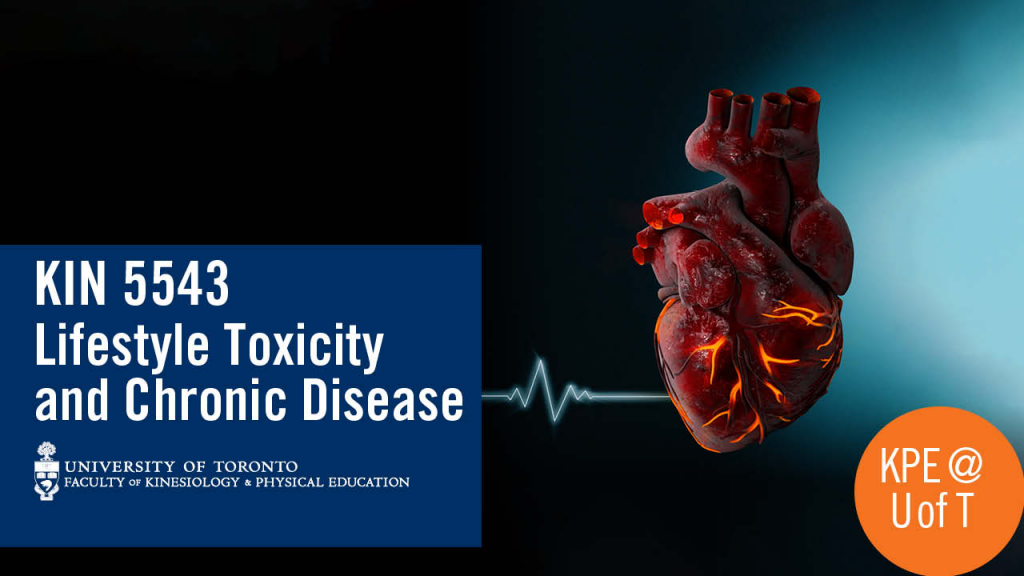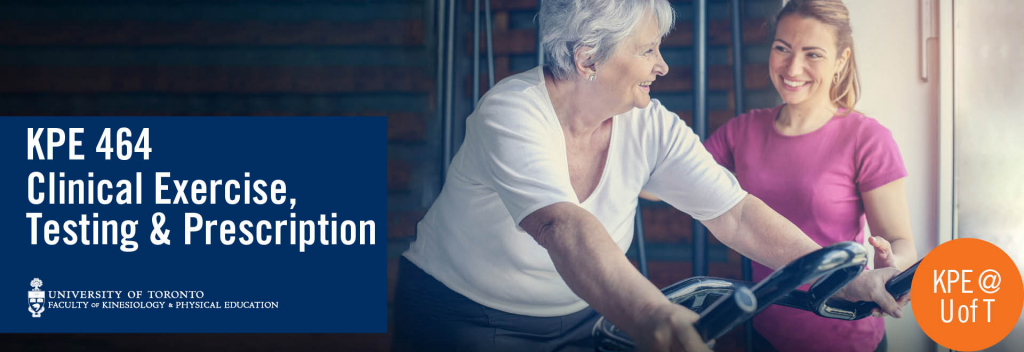My area of teaching expertise, similar to my research, is clinical and applied. I specialize in small, upper level, advanced format courses.
KIN5543: Lifestyle Toxicity and Chronic Disease
Course Description:
The top two causes of death and chronic disease burden in Canada are cancer and cardiovascular disease. Although commonly thought of as two separate disease entities, an emerging paradigm recognizes that cancer and cardiovascular disease possess various similarities and possible interactions. The two diseases share common biological mechanisms and risk factors including inflammation, oxidative stress, obesity, and smoking. Further, poor lifestyle behaviors (or lifestyle toxicity) increase the risk of development of both conditions, in addition to most other chronic diseases, and negatively affect prognosis after diagnosis. This advanced seminar-based course will discuss the intersectionality among chronic diseases, the role of lifestyle toxicity in development and prognosis as well as the role of healthy lifestyle behaviours in prevention and treatment. The content will include a mix of epidemiology and pathophysiology topics. The primary focus of course content will be on cardiovascular disease and cancer, but students will have opportunities to complete individual assignments on other chronic diseases. An important secondary learning outcome is the development of scientific skills including presentations, facilitating group discussions, and giving and receiving peer-based feedback.
KPE 464: Clinical Exercise Testing and Prescription
Course Description:
The key learning objectives of this course are to develop expertise in the theory and application of exercise testing and the prescription of exercise programming in clinical populations. The American College of Sport Medicine guidelines on risks of exercise, pre-participation screening, and testing procedures are reviewed with additional context and real-world examples provided. The focus will be on cardiorespiratory fitness and cardiovascular risk factors, but other components covered include muscular strength, endurance, and flexibility. In lieu of in-person lab testing, live tutorial sessions for this online course will include opportunities to apply the lecture content and practice communication, clinical reasoning, and interprofessional skills in small group- based discussions of case studies. Another key learning objective is the critique and evaluation of exercise-related research to facilitate the interpretation and application of emerging research findings by exercise professionals. Lecture material will also include the timely topic of remote or home-based exercise prescription. While the focus of this course is on exercise, students will gain knowledge and practical experience that is generalizable to various areas of clinical practice. The primary clinical populations covered in class content are cardiovascular diseases, cancer and diabetes, but students will have opportunities to study other clinical populations via assignments.


